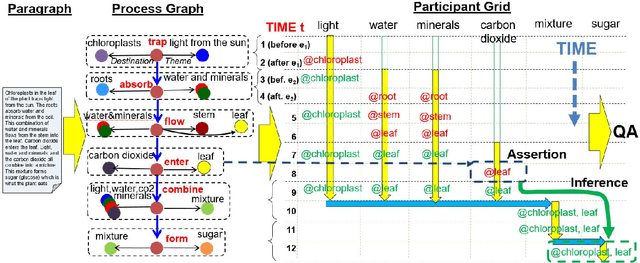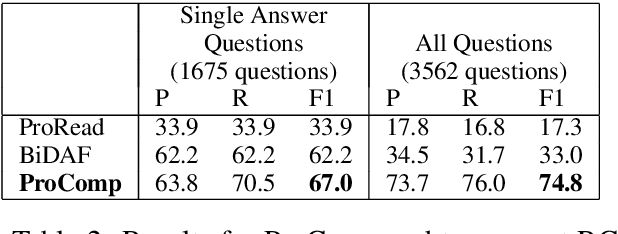What Happened? Leveraging VerbNet to Predict the Effects of Actions in Procedural Text
Paper and Code
Apr 15, 2018



Our goal is to answer questions about paragraphs describing processes (e.g., photosynthesis). Texts of this genre are challenging because the effects of actions are often implicit (unstated), requiring background knowledge and inference to reason about the changing world states. To supply this knowledge, we leverage VerbNet to build a rulebase (called the Semantic Lexicon) of the preconditions and effects of actions, and use it along with commonsense knowledge of persistence to answer questions about change. Our evaluation shows that our system, ProComp, significantly outperforms two strong reading comprehension (RC) baselines. Our contributions are two-fold: the Semantic Lexicon rulebase itself, and a demonstration of how a simulation-based approach to machine reading can outperform RC methods that rely on surface cues alone. Since this work was performed, we have developed neural systems that outperform ProComp, described elsewhere (Dalvi et al., NAACL'18). However, the Semantic Lexicon remains a novel and potentially useful resource, and its integration with neural systems remains a currently unexplored opportunity for further improvements in machine reading about processes.
 Add to Chrome
Add to Chrome Add to Firefox
Add to Firefox Add to Edge
Add to Edge